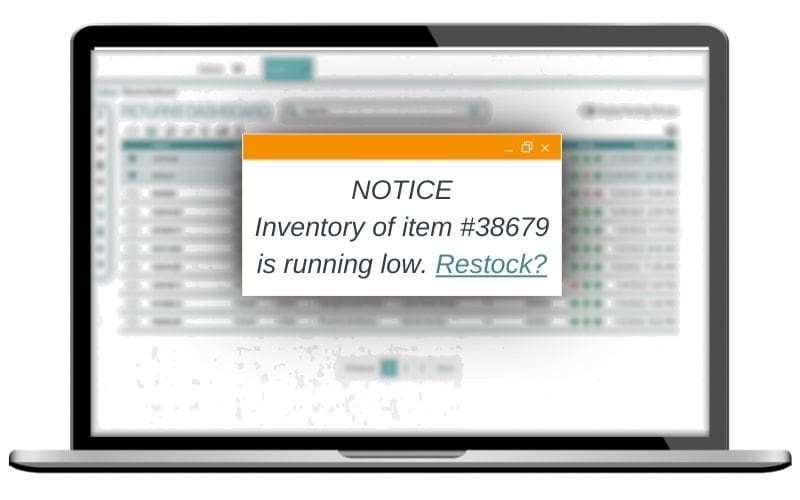
Precision in Motion: Exploring Just-In-Time Practices Across Auto Operations
From manufacturing to spare parts and repairs, the auto industry plays a vital role in the global economy and modern lifestyles. While this makes it lucrative, there’s still a need for efficiency and precision in production and deliveries to optimize profitability. This is why the Just-In-Time (JIT) auto has become such a popular approach.
JIT refers to an inventory management system that involves aligning production schedules with your orders for raw materials. By doing so, you can reduce inventory costs as you’ll only receive goods when they’re needed for production, which also boosts efficiency and reduces waste.
If you’re curious about the JIT phenomenon, keep reading to find out how you can apply it in different areas in the auto industry.
JIT Production/Manufacturing in the Auto Industry
In recent years, the primary challenge in the auto industry has been instability. The sector has faced numerous disruptions, from rising material prices and high labor turnover to shortages of critical components such as microchips. In turn, this has led to a dip in sales as supply has been unable to meet demand.
As such, addressing such challenges is a precursor to success; Just-in-Time (JIT) production in the auto industry can help as it’s a streamlined approach focused on producing goods precisely when they are needed in the manufacturing process.
In automotive manufacturing, JIT principles involve carefully timed production cycles, ensuring that components arrive precisely as they are required for assembly. This efficient model has become integral to modern automotive production, optimizing resource utilization and contributing to a more agile and cost-effective manufacturing process.

Benefits of JIT Production
Just-in-Time (JIT) production in the auto industry brings about a host of advantages that significantly impact efficiency, cost-effectiveness, and waste reduction.
1. REDUCED WASTE
One of the primary benefits of JIT production is the substantial waste reduction. Traditional manufacturing processes often result in surplus inventory and excess materials, increasing waste levels.
With JIT, the production process is finely tuned to meet demand, minimizing overproduction and excess stock. This not only decreases material waste but also mitigates the need for storage space, allowing for a cleaner and more environmentally friendly manufacturing approach.
2. IMPROVED EFFICIENCY
JIT production enhances overall efficiency by synchronizing every stage of the manufacturing process. Components are delivered precisely when needed through meticulous coordination, eliminating downtime and delays.
This synchronized workflow reduces idle time between production steps, leading to a more efficient and streamlined assembly process. Improved efficiency also extends to the workforce, as employees can focus on specific tasks without interruptions caused by excess inventory or delays in material availability.
3. COST-EFFECTIVENESS
Cost-effectiveness is a cornerstone benefit of JIT production in the automotive sector. By minimizing waste, optimizing efficiency, and reducing the need for extensive warehousing, JIT helps cut down on operational costs.
The just-in-time approach allows manufacturers to operate with leaner inventories, freeing up capital that would otherwise be tied up in stockpiled materials. Additionally, the reduction in waste and more efficient production processes contribute to long-term cost savings, making JIT an economically viable strategy for auto manufacturers.
In essence, the benefits of JIT production extend beyond the factory floor, impacting the entire supply chain. From resource optimization to cost savings, JIT has proven to be a transformative approach in the auto industry, aligning production with demand in a way that enhances both economic and environmental sustainability.
Challenges Associated with JIT Production in the Auto Sector
While Just-in-Time (JIT) production offers compelling advantages, it is not without its challenges. One significant hurdle is the heightened sensitivity to disruptions in the supply chain. Any unexpected delays, shortages, or quality issues can immediately and profoundly impact production schedules.
Moreover, the reliance on a seamless and tightly coordinated network demands robust communication and collaboration among suppliers, manufacturers, and distributors. These challenges underscore the need for meticulous planning and contingency measures to ensure the smooth execution of JIT production in automotive manufacturing.
Strategies to Implement Successful JIT Manufacturing Processes

Implementing successful Just-in-Time (JIT) manufacturing processes in the auto industry necessitates strategic planning and execution. First and foremost, fostering strong partnerships with reliable suppliers is paramount to ensure a steady flow of materials.
Real-time communication and data-sharing platforms enhance visibility across the supply chain, enabling quick responses to changes or challenges. Embracing technology, such as advanced inventory management systems and predictive analytics, will empower you to anticipate demands accurately.
Additionally, investing in employee training to enhance flexibility and adaptability is crucial for swiftly adapting to the dynamic requirements of JIT production.
JIT Auto Sales and Inventory Management
Beyond manufacturing, JIT also plays a key role in efficient auto sales and dealership operations. It helps with key inventory management elements such as aligning supply with demand, minimizing excess stock, and ensuring efficient turnover.
Benefits of JIT Auto Sales
With new vehicle sales in the US expected to reach 15.7 million in 2024, there’ll be plenty of room for growth. However, only the most efficient dealers will be able to capitalize on this uptick. In this regard, adopting Just-in-Time (JIT) practices for auto sales yields multifaceted benefits.
A pivotal advantage lies in optimized inventory turnover, where you’ll be able to strike a delicate balance between supply and demand. This ensures that vehicles are available precisely when customers seek them, mitigating the risks of overstock or shortages.
1. INVENTORY TURNOVER
If you want to make better decisions regarding pricing, marketing, and purchasing, calculating inventory turnover is essential. This refers to the ratio of how often you turn over your inventory in relation to the cost of goods sold (COGS) over a given period. Essentially, it lets you know how long it takes you to sell your inventory.
By prioritizing swift inventory turnover, JIT in auto sales will help you align the availability of vehicles with market demand. As a result, you can minimize the holding costs associated with maintaining excessive stock. The streamlined inventory turnover reduces storage expenses and enhances cash flow, allowing dealerships to allocate resources efficiently.
2. CUSTOMER SATISFACTION
According to data, nearly 60% of car buyers base their dealership choice on reputation. Therefore, you need to deliver top-notch customer service beyond offering the best vehicles and pricing. With high customer satisfaction scores, your reputation will also improve, attracting more clients.
As you can imagine, Just-In-Time in auto sales can help you boost customer satisfaction. With vehicles readily available and dealership operations finely tuned, customers experience a seamless purchasing process. This immediacy not only meets but exceeds consumer expectations, fostering positive relationships and brand loyalty.
The ability to provide a wide selection of vehicles promptly enhances the overall customer experience, setting the stage for lasting satisfaction and potential referrals.
Challenges Related to Maintaining JIT Inventory Levels in the Auto Retail Sector
While JIT practices in auto sales offer numerous advantages, challenges persist in maintaining optimal inventory levels. The fluctuating nature of market demand, supplier constraints, and unforeseen disruptions can pose obstacles.
Therefore, striking the delicate balance between supply and demand requires vigilant monitoring and adaptive strategies to address sudden shifts in consumer preferences or external factors impacting the supply chain.
Strategies to Optimize JIT Auto Sales and Inventory Management
To navigate the challenges associated with JIT inventory levels, you need to employ strategic approaches for optimal inventory management. For this, real-time data analytics and predictive modeling are crucial in anticipating market trends, ensuring dealerships stay ahead of demand fluctuations.
You should also cultivate collaborative partnerships with suppliers and manufacturers to enable a responsive and agile supply chain. In so doing, you’ll minimize disruptions and enhance the reliability of JIT practices in auto sales.
Additionally, leverage advanced inventory management systems and technologies. This helps streamline operations and provides you with the tools needed to make informed decisions and maintain the delicate equilibrium between inventory levels and consumer demand.
JIT Delivery Services for Auto Parts
If anything, the auto parts supply chain is characterized by a great need for speed. With every second vehicles are grounded, businesses are losing money and reputation damage due to the delays.
As such, ensuring timely and efficient delivery of auto parts is essential, JIT delivery solutions are ideal for this. From the manufacturing facility to distribution centers and ultimately to automotive repair shops, the integration of JIT delivery practices enhances operational efficiency.
The Significance of Timely and Efficient Delivery in the Automotive Sector
In the automotive sector, the significance of timely and efficient delivery cannot be overstated. JIT delivery services contribute to the overall effectiveness of the supply chain by ensuring that auto parts are delivered when needed.
This not only minimizes storage costs but also addresses the critical need for quick turnaround times in the repair and maintenance of vehicles. Timely deliveries play a crucial role in preventing delays in automobile production and servicing, helping maintain optimal operational efficiency throughout the entire automotive ecosystem.
The interconnectedness of suppliers, manufacturers, and repair facilities underscores the importance of JIT delivery services in meeting the dynamic demands of the automotive industry.
Challenges and Potential Disruptions in JIT Delivery for Auto Parts
Despite the gains in operational efficiency, JIT delivery for auto parts also comes with some challenges and potential disruptions. For instance, geopolitical issues, natural disasters, and other unforeseen events can impact transportation networks.
When this happens, it can lead to delays in the delivery of crucial auto parts, affecting production schedules and potentially causing setbacks for manufacturers and repair facilities.
Moreover, the reliance on precise timing increases the vulnerability to unexpected fluctuations in demand. Sudden spikes in demand or unforeseen changes in market conditions can strain the JIT delivery system, creating challenges in maintaining the delicate balance between supply and demand. This requires careful forecasting and strategic planning to mitigate the impact of unforeseen circumstances.
Additionally, the just-in-time approach demands a high level of coordination and communication among all stakeholders in the supply chain. Inadequate communication or mismanagement can lead to errors, delays, and inefficiencies in the delivery process. Suppliers, manufacturers, and logistics providers must work seamlessly together to address these challenges and ensure the smooth functioning of JIT delivery services for auto parts.
Recognizing and proactively addressing these challenges is essential for businesses adopting JIT delivery in the automotive sector. Strategic contingency planning, robust communication channels, and a flexible approach to handling disruptions are critical components of a successful JIT delivery strategy for auto parts.
Strategies for Streamlining JIT Delivery Processes
Efficient and streamlined JIT delivery processes are vital for the success of just-in-time services in the automotive sector. Several strategies can enhance the effectiveness of JIT delivery, ensuring timely and precise transportation of auto parts.

- Real-Time Monitoring and Visibility: Implementing advanced tracking and monitoring systems provides real-time visibility into the movement of auto parts within the supply chain. This transparency allows for better coordination and quick identification of any potential disruptions.
- Collaborative Relationships: Building strong and collaborative relationships with suppliers, manufacturers, and logistics partners is essential. Clear communication and mutual understanding of expectations contribute to a more responsive and adaptable JIT delivery network.
- Data-Driven Forecasting: Utilizing data analytics and forecasting tools helps predict demand patterns more accurately. By analyzing historical data and market trends, businesses can optimize inventory levels and prevent shortages or excesses.
- Flexible Logistics Networks: Creating a flexible logistics network enables adaptability to changes in demand and supply. Multiple distribution centers strategically located can contribute to a more resilient JIT delivery system.
- Risk Mitigation Strategies: Developing contingency plans for potential disruptions is crucial. Identifying alternative suppliers, establishing backup transportation routes, and having a risk management protocol in place enhance the ability to navigate unforeseen challenges.
- Investment in Technology: Embracing cutting-edge technologies, such as automation and artificial intelligence, can streamline various aspects of the delivery process. Automated order processing, route optimization, and predictive analytics improve operational efficiency.
By incorporating these strategies, you will not only address challenges but also create a robust JIT delivery ecosystem that fosters reliability, responsiveness, and overall efficiency in the automotive supply chain.
Getting to the Next Level with Unparalleled Efficiency
The Just-In-Time auto revolution is a transformative force in the automotive industry, optimizing production, sales, and delivery processes. JIT practices offer reduced waste, improved efficiency, and cost-effectiveness in manufacturing, while JIT auto sales enhance inventory turnover and customer satisfaction.
Despite challenges, strategic inventory management and streamlined delivery processes are achievable with the right approaches.
No matter your delivery goals or challenges, Elite EXTRA is here to help. Contact us today to learn how we can help you streamline your delivery operations!
Sources
https://finmodelslab.com/blogs/profitability/ auto-manufacturing-profitability
https://www.jpmorgan.com/insights/global-research/supply-chain/chip-shortage
https://www.acronis.com/en-us/blog/posts/automotive-manufacturing
https://www.investopedia.com/terms/c/ cogs.asp
https://porchgroupmedia.com/blog/59-auto-shoppers-choose-dealership-based-reputation







